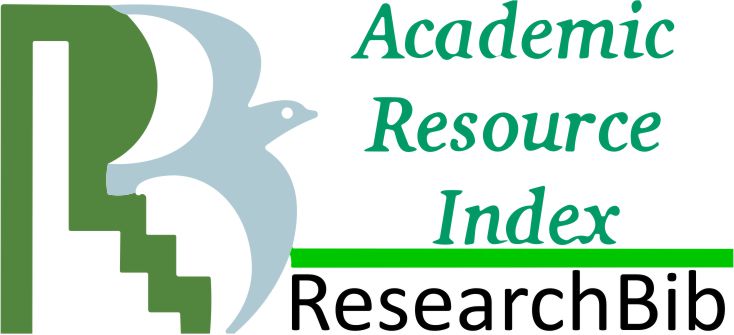DOI
10.21002/jaki.2019.10
Abstract
This study was carried out to reveal the actual quality of sustainability disclosure, actuated by some recent studies that pointed out the lack of disclosure quality amid the growing trend of CSR and the tendency that CSR disclosure was dominantly constructed to manage the corporate image. This study also seeks to investigate the role of stakeholder groups (primary, secondary and regulatory stakeholders), by analyzing the sustainability disclosures of 224 primary sector companies among the five emerging markets in Southeast Asia: Indonesia, Malaysia, Singapore, Thailand, and Philippines in the year of 2016. The extensive disclosure index was also employed to assess each disclosure item under the GRI G4 Guidelines. The results revealed that the quality of sustainability disclosure is still low. In this regard, Thailand turns into the country with the highest score, followed by Malaysia and Indonesia. Labor practice aspect becomes the most expressed aspect by the companies, followed by environmental and social aspect. Based on results obtained, it is therefore argued that employees, auditors, mass media, and regulators have roles in encouraging companies to enhance the quality of sustainability disclosure. However, this study does not find a significant influence from the shareholders and international consumers. The contradictory result was found from creditors, conveying that they possess a negative influence on the quality of sustainability disclosure.
References
Ahmad, Z., Hassan, S., Mohammad, J. 2003. Determinants of environmental reporting in Malaysia. Int. J. Bus. Stud. 11 (1), 69-90. ASEAN. 2015. ASEAN Integrative Report 2015. Jakarta: ASEAN Secretariat. ASEAN. 2015. ASEAN Socio-Cultural Community Blueprint 2025. Jakarta: ASEAN Secretariat. ASEAN. 2016. ASEAN Statistical Leaflet 2016. Jakarta: ASEAN Secretariat. Belkaoui, A. and Karpik, P.G. 1989. Determinants of the corporate decision to disclose social information. Accounting, Auditing & Accountability Journal, Vol. 2 No. 1, pp. 36-51. Buysse, K., & Verbeke, A. 2003. Proactive environmental strategies: A stakeholder management perspective. Strategic Management Journal 24(5), 453-470. Carroll, B.A., and A.K. Buchholtz. 2008. Business & Society: Ethics and Stakeholder Management, 7th Edition. South-Western Cengage Learning, USA. Chiu, T.-K., Y.H. Wang. 2015. Determinants of Social Disclosure Quality in Taiwan: An Application of Stakeholder Theory. J Bus Ethics (2015) 129:379–398. Clarkson, M.B.E. 1995. A stakeholder framework for analyzing and evaluating corporate social performance. Academy of Management Review 20(1): 92–117. Cormier, D. and M. Magnan. 2003. Environmental Reporting Management: A European Perspective. Journal of Accounting and Public Policy 22, 43–62. Cormier, D., & Magnan, M. 2015. The economic relevance of environmental disclosure and its impact on corporate legitimacy: An empirical investigation. Business Strategy and the Environment, 24(6), 431-450. Dam, L., & Scholtens, B. 2008. Environmental regulation and MNEs location: Does CSR matter?. Ecological Economics, 67 (1), 55-65. Daub, C. H. 2007. Assessing the quality of sustainability reporting: an alternative methodological approach. Journal of Cleaner Production, 15(1), 75-85. De Villiers, C., & Alexander, D. 2014. The institutionalisation of corporate social responsibility reporting. The British Accounting Review, 46(2), 198-212. Donaldson, T. and L. E. Preston. 1995. The Stakeholder Theory of the Corporation: Concepts, Evidence, and Implications. Academy of Management Review 20 (1) 65–91. Dong, S., R. Burritt, W. Qian. 2014. Salient stakeholders in corporate social responsibility reporting by Chinese mining and minerals companies. Journal of Cleaner Production 84 pp.59-69. Dong, S., & Xu, L. 2016. The impact of explicit CSR regulation: Evidence from China’s mining firms. Journal of Applied Accounting Research, 17(2), 237-258. Dutta, S., Lawson, R., & Marcinko, D. 2012. Paradigms for sustainable development: Implications of management theory. Corporate social responsibility and environmental management, 19(1), 1-10. Fernandez-Feijoo, B., S. Romero, and S. Ruiz. 2014. Effect of Stakeholders’ Pressure on Transparency of Sustainability Reports within the GRI Framework. Journal of Business Ethics 122, 53–63. Freeman, R. E. 1983. Stockholders and Stakeholders: A New Perspective on Corporate Governance. California Management Review (pre-1986); Spring 1983; 25, 000003; ABI/INFORM Global pg. 88. Freeman, R. E. 1984. Strategic Management: A Stakeholder Approach. Pitman Publishing Inc, Marshfield, MA. Freeman, R. E., Wicks, A. C., & Parmar, B. 2004. Stakeholder theory and “the corporate objective revisited”. Organization science, 15(3), 364-369. Freeman, R. E., Harrison, J. S., Wicks, A. C., Parmar, B. L., & De Colle, S. 2010. Stakeholder theory: The state of the art. Cambridge University Press. Gamerschlag, R., K. Moller, and F. Verbeeten. 2011. Determinants of Voluntary CSR Disclosure: Empirical Evidence from Germany. Review of Managerial Science 5, 233–262. Garcia-Sanchez, I.M., B. Cuadrado-Ballesteros, C. Sepulveda. 2014. Does media pressure moderate CSR disclosures by external directors? Management Decision, Vol. 52 Issue: 6, pp.1014-1045. Gray, R., & Herremans, I. 2011. Sustainability and social responsibility reporting and the emergence of the external social audits: The struggle for accountability? Guo, P., Chen, Y., Tan, X., Li, W., Zhang, J., Du, Y., Zhang, X. 2009. A Journey to Discover Values: 2009 Study of Sustainability Reporting in China. Hackston, D., & Milne, M. J. 1996. Some determinants of social and environmental disclosures in New Zealand companies. Accounting, Auditing & Accountability Journal, 9(1), 77-108. Haniffa, R.M. and Cooke, T.E. 2005. The impact of culture and governance on corporate social reporting. Journal of Accounting Public and Policy, Vol. 24, pp. 391-430. Harrison, J.S., and R.E Freeman. 1999. Stakeholders, Social Responsibility, and Performance: Empirical Evidence and Theoretical Perspectives. The Academy of Management Journal, Vol. 42, No. 5, pp. 479-485. Hörisch, J., Freeman, R.E., and Schaltegger, S. 2014) Applying Stakeholder Theory in Sustainability Management: Links, Similarities, Dissimilarities, and a Conceptual Framework. Organization & Environment Vol. 27 (4) 328– 346. Huang, C.L., and F.H. Kung. 2010. Drivers Of Environmental Disclosure and Stakeholder Expectation: Evidence from Taiwan. Journal of Business Ethics 96, 435-451. Jamali, D., & Mirshak, R. 2007. Corporate social responsibility (CSR): Theory and practice in a developing country context. Journal of business ethics, 72(3), 243-262. Jensen, M.C., and W.H. Meckling. 1976. Theory of the firm: Managerial behavior, agency costs and ownership structure. Journal of Financial Economics 3.4: 305-360. Johnston, A. 2011. Facing up to social cost: the real meaning of corporate social responsibility. Griffith Law Review, 20(1), 221-244. KPMG. 2015. The KPMG Survey of Corporate Responsibility Reporting 2015. KPMG International Cooperative Kuzey, C., and A. Uyar. 2017. Determinants of sustainability reporting and its impact on firm value: Evidence from the emerging market of Turkey. Journal of Cleaner Production 143 pp. 27-39. Lozano, R., & Huisingh, D. 2011. Inter-linking issues and dimensions in sustainability reporting. Journal of Cleaner Production, 19(2), 99-107. Lu, Y., and I. Abeysekara. 2014. Stakeholders’ power, corporate characteristics, and social and environmental disclosure: evidence from China. Journal of Cleaner Production 64 pp. 426-436. Nugroho, Y., Putri, DA., Laksmi, S. 2012. Mapping the landscape of the media industry in contemporary Indonesia. Report Series. Engaging Media, Empowering Society: Assessing media policy and governance in Indonesia through the lens of citizens’ rights. Research collaboration of Centre for Innovation Policy and Governance and HIVOS Regional Office Southeast Asia, funded by Ford Foundation. Jakarta: CIPG and HIVOS. Perrini, F., and A. Tencati. 2006. Sustainability and Stakeholder Management: the Need for New Corporate Performance Evaluation and Reporting Systems. Business Strategy and the Environment 15, 296–308 Roberts, R. W. 1992. Determinants of Corporate Social Responsibility Disclosure: An Application of Stakeholder Theory. Accounting, Organizations and Society 17(6), 595–612. Schmenner, R. W. 1986. How Can Service Businesses Survive and Prosper? Sloan Management Review, 27:3 (1986: Spring) p.21 Sharma, S., and I. Henriques. 2005. Stakeholder influences on sustainability practices in the canadian forest products industry. Strategic Management Journal 26: 159–180 (2005) Siregar, S.V., and A. Rudyanto. 2016. The Effect of Stakeholder Pressure and Corporate Governance on the Quality of Sustainability Report. International Conference on Accounting Studies (ICAS), 15-18 August 2016, Langkawi, Kedah, Malaysia. Siregar, S.V., and A. Rudyanto. 2016. The Effect of Stakeholder Pressure and Corporate Governance on the Quality of Sustainability Report. International Conference on Accounting Studies (ICAS), 15-18 August 2016, Langkawi, Kedah, Malaysia. SSE Initiative. 2016. 2016 Report on Progress (www.SSEinitiative.org). Vuontisjärvi, T. 2006. Corporate social reporting in the European context and human resource disclosures: An analysis of Finnish companies. Journal of Business Ethics, 69(4), 331-354. Wallace, R.S.O., Naser, K., Mora, A., 1994. The relationship between the comprehensiveness of corporate annual reports and firm characteristics in Spain. Account. Bus. Res. 25 (97), 41-53. World Bank. 2017. Commodity Markets Outlook (Quarterly Report). Washington: World Bank Group.
Recommended Citation
Trianaputri, Anisa Ramadhini and Djakman, Chaerul D.
(2019)
"QUALITY OF SUSTAINABILITY DISCLOSURE AMONG THE ASEAN-5 COUNTRIES AND THE ROLE OF STAKEHOLDERS,"
Jurnal Akuntansi dan Keuangan Indonesia: Vol. 16:
No.
2, Article 4.
DOI: 10.21002/jaki.2019.10
Available at:
https://scholarhub.ui.ac.id/jaki/vol16/iss2/4












